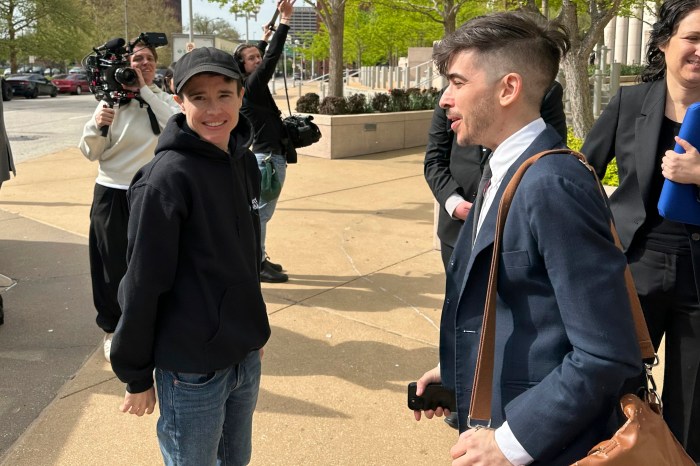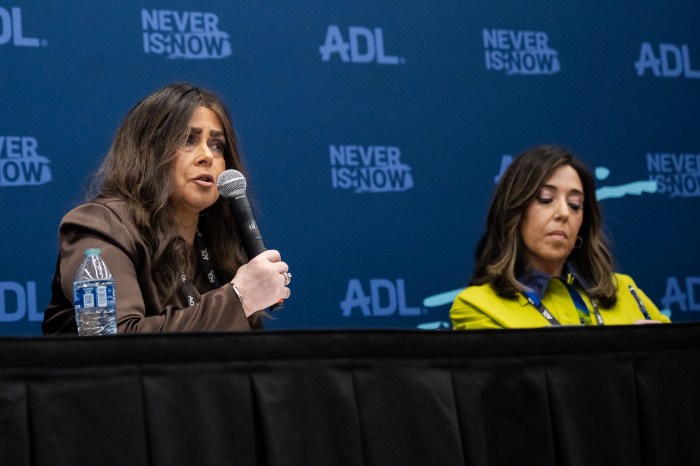Eternal Silver Belles, Bard’s Cultural Trove, Lucie’s B-Day
Heather Lynn MacDonald’s documentary “Been Rich All My Life” is an inspiring account of the Silver Belles, five 1930s showgirls, now aged 84-96, who continue to dance, earning standing ovations wherever they appear. To talk to them is to revisit the so-called Golden Era of Harlem when clubs like Small’s Paradise, Zanzibar and the all-white-except-for-performers-and-staff Cotton Club dazzled audiences with the legendary talents of Duke Ellington, Lena Horne, Ethel Waters, and Cab Calloway.
MacDonald had read an article about them in The New York Times and set about contacting the ladies to be filmed. It took some convincing to get the approval of their fiercely protective manager, Geri Kennedy, who explained her initial hesitation.
“We’ve been approached many times before by filmmakers but, you see, these ladies have been so badly exploited in the past, all their lives, that I had to be absolutely sure this was going to be legit.”
“At first I thought it would just take a couple months,” MacDonald said. “But the ladies became more and more interesting with ever more stories to tell, so I ended up following them around for two years. ‘Oh my god! She’s here again!’ they’d say, but to me they were and are the most gorgeous women you will ever see!”
MacDonald’s doc is filled with photos and footage of the Silver Belles in their prime, all long-stemmed café au lait beauties. “We were all light-skinned,” recalled angelic Elaine Ellis. “It wasn’t right, of course, but that’s what they wanted and that’s how it was.”
Cleo Hayes is the feistiest one in the group with the most to say. When I asked how Lena Horne was to work with, Marion Coles said, “What I loved about her was the fact that she was always one way. She never changed.” But Hayes quickly interjected, “I got to tell you something, Mary. She did change, from time to time.” Coles protested, but was quickly cut off by Hayes—“Remember me? I hung out with her!”
Other Hayes reminiscences included Ethel Waters.
“I was doing the finale at the Zanzibar and she was standing backstage and I backed right up into her. I nearly died because we had gone to court against her. There was this fellow who was accused of stealing money from her and he was a better friend of ours than she was. So we all went to court as character witnesses for him that he could not have done what she accused him of, and she looked at us like, ‘You just wait!’ She was an artist, but tough.”
Of the great Bill “Bojangles” Robinson, Hayes said, “I talk about him because I know what he did to me. They had to make a special rule, which was the reason I stayed at the Cotton Club. He had gotten on the floor and said, ‘I will not work with her again!’ Here was this great big star and poor little hungry me, a chorus girl. Cab Calloway stood up for me and said, ‘If she’s not here, I’m not here.’”
I asked Hayes what Robinson’s problem was and she fixed me with her icy blues and said, “You know what the problem was! That was the problem. And I wasn’t the only one.” Fans of Duke Ellington will be happy to learn that, unlike Robinson, he was always the perfect gentleman and demanded no sexual favors. Coles remembered, “Everybody was in awe of him. He was just aloof, all by himself, but he loved everybody.”
When I asked the ladies what their secret to survival was, they all answered, “Hard work and doing what you love.” As Bertye Lou Wood, who died during the film’s shoot said, “I’m going to dance, dance, dance ‘til I can’t dance no more, and I’m going to live, live, live ‘til I die!”
I urge you to get up to Bard College in Annandale-on-Hudson to enjoy some of the rich cultural offerings of their Summerscape (summerscape.bard.edu). It’s worth the trip just to see Frank Gehry’s fantastic silver Richard B. Fisher Center for the Performing Arts. The festival has also erected the charming SpiegelPalais (palace of mirrors), where you can eat, drink, enjoy nightly cabaret and feel like you’re in a Schnitzler play. You can waltz in here, directly from a screening of Bard’s Max Ophuls film festival, which includes such swooningly romantic titles as Schnitzler’s “La Ronde,” “The Earrings of Madame De,” “The Reckless Moment,” and the terrific “Caught” with a pungent script by Arthur Laurents and Curt Bois in a peerlessly sleazy performance as a pimp, forever saying, “Tough, baby!”
On July 9, I had an Alexandre Dumas, fils orgy, starting with the new stage adaptation of his immortal “Camille,” by Neil Bartlett. In addition, there were screenings of two “Camille” film versions, with überlesbian artiste Alla Nazimova in the 1921 silent, and the definitive 1936 George Cukor-Garbo rendition, which remains my personal favorite film. Directed by Kate Whoriskey, Bartlett’s adaptation was resolutely post-modern, beautifully costumed by the talented Ilona Sómogyi, but suffering from overstressed performances and a vulgar ambiance that had nothing of the piercing delicacy of the Cukor.
Lucie Arnaz celebrated her, as she put it, murmur-th birthday, at a packed-to-the-gills Birdland on July 17. “See what a little blackmail and emails can do?” she gleefully announced before launching into a lengthy set which showed off her rangy voice in standards, country and her own Broadway hit “They’re Playing Our Song.” She paid constant tribute to her dad, Desi Arnaz, whose music inspired her from childhood and, indeed, was at her best in a couple of fiery Latin songs, accompanied by her son Simon on congas. A lineup of pals joined her onstage, including Julie Budd, Phoebe Snow who brought down the house with “Time After Time,” and a wild Michele Lee, who kept salaciously appraising Lucie’s bod to the point where she had to explain herself: “Well, after that [lesbian] part I played in ‘Tale of the Allergist’s Wife…”
Arnaz somewhat mysteriously didn’t mention her mother, Lucille Ball until the final moments, when she laughingly said, “It was hard picking from the many songs she made famous,” and then sang an affecting, slowed-down version of the rousing “Hey, Look Me Over,” from Ball’s Broadway musical, “Wildcat,” which was Cy Coleman’s first big hit.
On July 28-August 5, Robert Schumann’s only opera, “Genoveva,” will be presented in its first full-scale U.S. production, directed by the Royal Danish Opera’s Kasper Bech Holten, fresh from his triumphant Ring Cycle. There’s a triple bill of Offenbach operettas, “Les deux aveugles,” “ L’Ile de Tulipatan,” and “Ba-ta-clan” (August 3-12), conducted by James Bagwell and directed by Ken Roht.
Contact David Noh at
Inthenoh@aol.com
gaycitynews.com

































